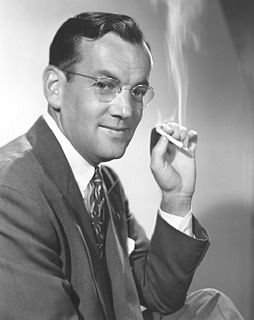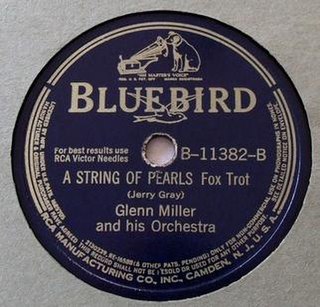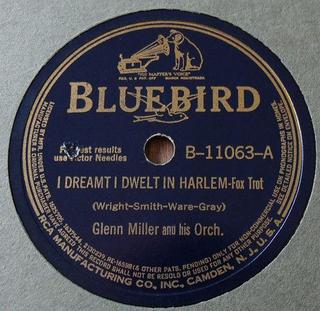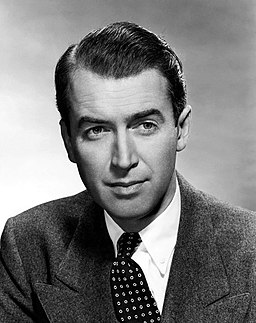
"It Happened in Sun Valley" is a 1941 song composed by Harry Warren and with lyrics by Mack Gordon. It was recorded and featured by Glenn Miller and his Orchestra in the movie Sun Valley Serenade.

Between 1938 and 1944, Glenn Miller and His Orchestra released 266 singles on the monaural ten-inch shellac 78 rpm format. Their studio output comprised a variety of musical styles inside of the Swing genre, including ballads, band chants, dance instrumentals, novelty tracks, songs adapted from motion pictures, and, as the Second World War approached, patriotic music. Non-instrumental songs featured Miller's various vocalists, generally Ray Eberle or Marion Hutton before 1940, with Tex Beneke, vocal group The Modernaires, and Skip Nelson all making studio vocal appearances after the turn of the decade. Beginning with An Album of Outstanding Arrangements in 1945, this collection has been repackaged into various album formats over time with release on 78 rpm, 10 and 12 inch LP, 7 inch 45 rpm, compact cassette, 8-track, compact disc (CD), and digital formats.

"A String of Pearls" is a 1941 song recorded by Glenn Miller and His Orchestra on RCA Bluebird, composed by Jerry Gray with lyrics by Eddie DeLange. The song is a big band and jazz standard.

"I Swung the Election" is a 1939 song composed by Glenn Miller and recorded by jazz trombonist Jack Teagarden and his orchestra. Jack Teagarden released the song as a Columbia 78 single in 1939 and as a V-Disc in 1948.
George Dale "The Fox" Williams was a musician, composer, and an arranger for a number of major big bands, including Jimmie Lunceford, Glenn Miller, Gene Krupa, Sonny Dunham, and Ray Anthony.

Community Swing is a swing jazz instrumental composed and recorded by Glenn Miller and released as a Brunswick 78 single in 1937 by Glenn Miller and His Orchestra.

Sometime is a 1939 song composed by Glenn Miller, Chummy MacGregor, and Mitchell Parish and performed for radio broadcast only. The song was never recorded in the studio but was performed live for remote radio broadcast on the Mutual and Blue Network from the Meadowbrook Ballroom in Cedar Grove, New Jersey.

"I Dreamt I Dwelt in Harlem" is a 1941 jazz and pop song recorded by Glenn Miller and His Orchestra. The song was released as a 78 single on RCA Bluebird by Glenn Miller.

"It Must Be Jelly " is a 1942 jazz and pop song recorded by Glenn Miller and His Orchestra. The song was released as an RCA 78 single by Glenn Miller in 1944. Woody Herman also released the song as a single and as a V-Disc.

"Pennsylvania 6-5000" is a 1940 swing jazz and pop standard with music by Jerry Gray and lyrics by Carl Sigman. It was recorded by Glenn Miller and His Orchestra as a Bluebird 78 rpm single.

"Here We Go Again" is a swing jazz instrumental recorded by Glenn Miller. The song was released as a 78 single.

"I Know Why " is a 1941 song by Glenn Miller and His Orchestra. The song appeared in the 20th Century Fox movie Sun Valley Serenade. The song was also released as an RCA Bluebird 78 single.

"Crosstown" is a 1940 song recorded by Glenn Miller and His Orchestra. The song was written by James Cavanaugh, John Redmond, and Nat Simon.

"Every Day's a Holiday" is a song written by Sam Coslow and Barry Trivers. The song was recorded by Glenn Miller and His Orchestra on Brunswick Records in 1938.
George Siravo was a composer, arranger, conductor, saxophonist, and clarinetist.

"Tomorrow's Another Day" is a 1935 song composed by Glenn Miller for the Dorsey Brothers Orchestra. The song was released as a 78 single by the Dorsey Brothers Orchestra on Decca Records.

125 Jazz Breaks for Trombone is a 1927 folio or songbook of compositions for trombone by Glenn Miller. The jazz breaks were included in a songbook published by the Melrose Brothers in Chicago and a UK edition by Herman Darewski.

"Harlem Chapel Chimes" is a 1935 jazz instrumental composed by Glenn Miller. The song was released as an A-side 78 single by the Dorsey Brothers Orchestra.






















